Turkish Tails: Stray Dogs at Risk While Street Cats Thrive
Debate Erupts Over Proposed Culling Plan as Cultural Affection for Cats Highlights Double Standards in Animal Welfare
In recent weeks, Turkey has found itself at the center of a heated debate over the fate of its stray dog population. A proposed government bill aims to manage the burgeoning number of stray dogs through measures that include culling, a move that has sparked outrage among animal rights activists and dog lovers across the nation. This controversy stands in stark contrast to Turkey's well-documented affection for its street cats, raising questions about the country's double standard.
Proponents of the Culling Plan
The Turkish government, led by President Recep Tayyip Erdoğan, has introduced a bill that seeks to address the issue of stray dogs, which number in the millions. The proposed measures include rounding up stray dogs, housing them in shelters for a limited period, and resorting to euthanasia if they remain unadopted after 30 days. Proponents argue that such steps are necessary to ensure public safety, citing incidents of dog attacks and the spread of diseases like rabies.
Rabies is public health concern in Turkey, with approximately 200 cases reported annually in animals, primarily in urban areas and provinces such as Istanbul, the Aegean coast, and the southern regions of Adana, Hatay, and Gaziantep. The domestic dog is the principal reservoir for rabies, accounting for over 60% of cases until recently. Human cases, though rare, are serious, with about 180,000 rabies risk-posing animal contacts reported each year, resulting in 1-2 human rabies cases annually. Despite the low number of human cases, the high mortality rate of rabies if untreated underscores the need for effective control measures.



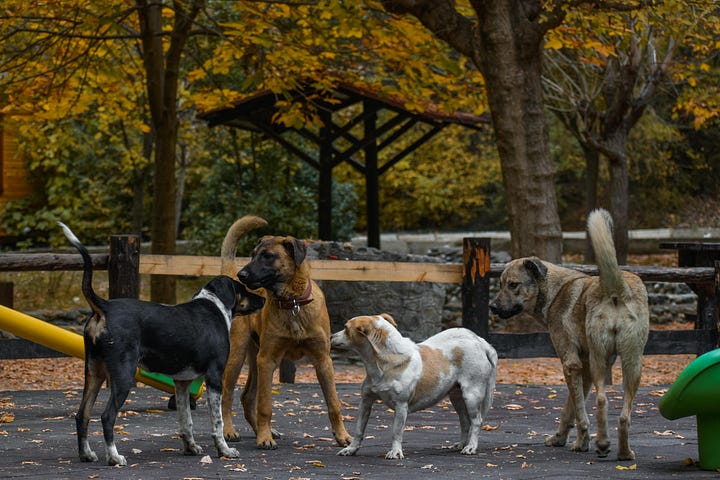
Critics of the Culling Plan
Critics, however, contend that culling is both inhumane and ineffective. Animal rights activists argue that the government should focus on more humane and sustainable solutions, such as widespread sterilization and vaccination programs. These advocates point to the success of similar initiatives in other countries and warn that culling could lead to increased aggression among the remaining dog population, exacerbating the problem rather than solving it.
Critics of culling argue that such measures could lead to increased aggression among the remaining dog population because of several behavioral and ecological factors. Stray dogs often form social packs with established hierarchies. Culling disrupts these social structures, leading to increased competition and aggression as dogs vie for dominance in the newly formed groups. Dogs are also territorial animals. Removing a significant portion of the population can create a vacuum, prompting the remaining dogs to expand their territories aggressively to claim new resources and areas.
A Love Affair with Cats
While stray dogs face an uncertain future, Turkey's street cats enjoy a much more favorable status. In cities like Istanbul, cats are an integral part of the urban landscape, often seen lounging in cafes, parks, and even mosques. The local government and residents alike provide food, shelter, and medical care for these feline inhabitants, reflecting a deep-seated cultural affection for cats.
This dichotomy in treatment between dogs and cats can be traced back to historical and cultural factors. Cats have long been revered in Turkish society, partly due to their association with Islamic traditions, which regard them as clean and beneficial animals. In contrast, dogs have often been viewed with suspicion and fear, particularly in urban areas where their presence is linked to public health concerns.
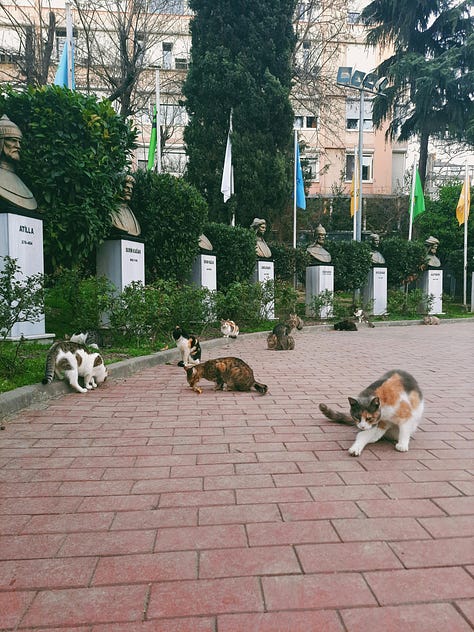

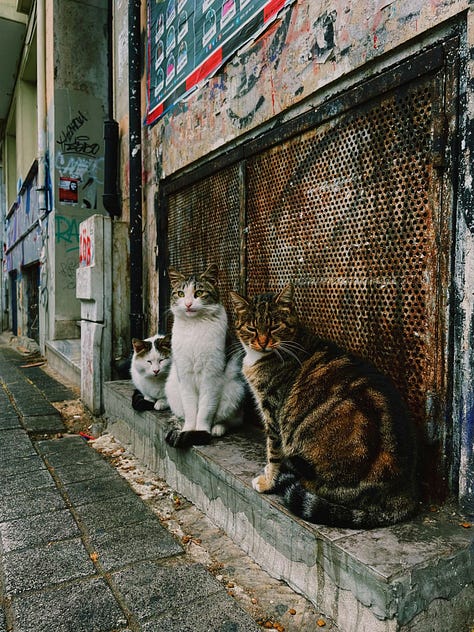
The Path Forward
The debate over Turkey's stray dog population underscores the need for a balanced and compassionate approach to animal welfare. Experts like Dr. Murat Arslan, head of the Turkish Veterinary Medical Association, emphasize the importance of improving shelter conditions and expanding sterilization programs to manage the dog population humanely. Activists also call for greater public education on responsible pet ownership and the benefits of adopting stray animals.
In juxtaposing the plight of Turkey's stray dogs with the country's affection for its street cats, it becomes clear that a more consistent and humane policy towards all animals is needed. The love and care shown to cats demonstrate that Turkish society has the capacity for compassion and responsible stewardship of its animal population.
Extending this care to dogs could not only improve their welfare but also enhance public safety and health.
Call to Action
Concerned individuals who wish to take action can reach out to several key organizations and government bodies to voice their opposition to the proposed culling plan and advocate for humane solutions:
Turkish Veterinary Medical Association (TVMA): Contact Dr. Murat Arslan and other leaders within the TVMA to support their efforts in promoting humane animal management practices.
Website: tvhb.org.tr
Email: info@tvhb.org.tr
Haytap (Animal Rights Federation): This organization is at the forefront of animal rights advocacy in Turkey and can provide guidance on how to get involved.
Website: haytap.org
Email: bilgi@haytap.org
Local Municipalities: Reach out to local government officials in cities like Istanbul, Ankara, and Izmir to express concerns and suggest humane alternatives to culling.
Istanbul Municipality: ibb.istanbul
Ankara Municipality: ankara.bel.tr
Izmir Municipality: izmir.bel.tr
Social Media Campaigns: Join or start social media campaigns using hashtags like #SaveTurkishDogs and #HumaneSolutions to raise awareness and mobilize support globally.
By expanding its circle of compassion and responsibility to include dogs, Turkey can set an example for other nations facing similar challenges and ensure a better future for all its animal inhabitants.
Ed Boks is a former Executive Director of the New York City, Los Angeles, and Maricopa County Animal Care & Control Departments. He is available for consultations. His work has been published in the LA Times, New York Times, Newsweek, Real Clear Policy, Sentient Media, and now on Animal Politics with Ed Boks.




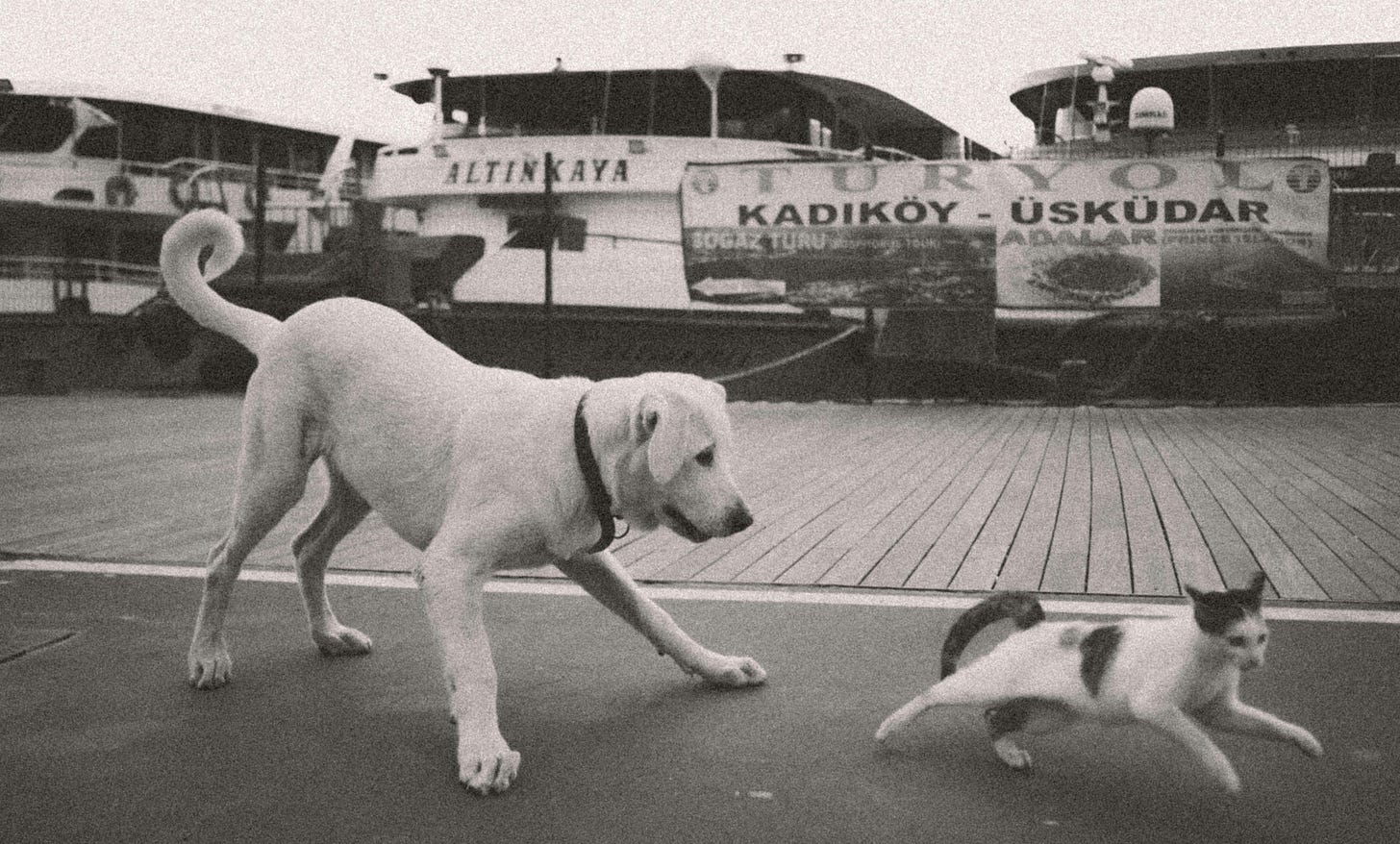
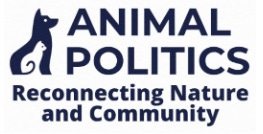
Homeless Cats are treated very well there